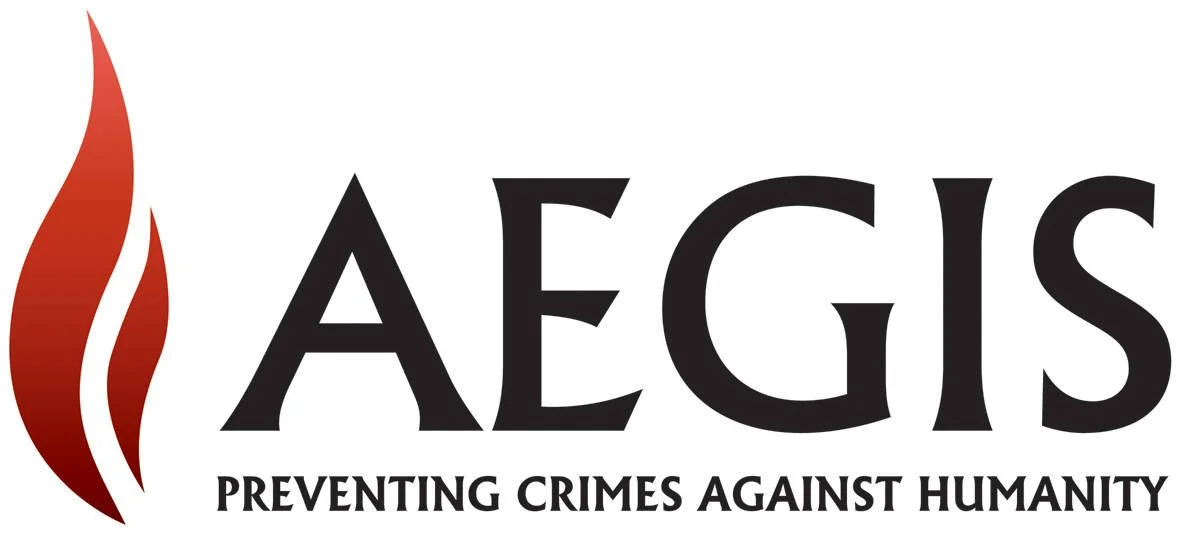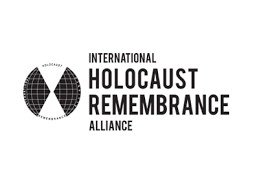
About Us
Radio La Benevolencija – Humanitarian Tools Foundation (RLB) is a Dutch NGO that empowers groups and individuals who are the target of hate speech and ensuing acts. We produce media edutainment (Entertainment-Education) programmes, and implement complementary grassroots practice activities, to educate citizens in vulnerable societies on how to recognise and resist manipulation to violence and how to deal with trauma – stimulating them to become active bystanders against incitement and hate.
Vision
We contribute to a future world that has overcome polarization and violence, acting in unison to deal with its dangers and problems.
Mission
“Attack Problems- not people!”
RLB works to increase resilience to processes that lead societies and individuals to all forms of Identity-based violence. We use the best available research, broadcast- and online media behaviour change practices, to effectively reach audiences vulnerable to incitement. and empower them to resist it as “active bystanders”. This in order to fight polarization and make a durable contribution to social cohesion and conflict transformation in our increasingly vulnerable societies.
Values
RLB is strictly non-ethnic, non-denominational, and non-governmental, combating identity-based violence. Advocating sanity, empathy, and mutual aid under the motto “Attack problems, not people!”
Core Values:
Credibility: Acting on research-based knowledge, evaluating, and publishing impact.
Solidarity: Acting with empathy and respecting individual differences.
Self-empowerment: Encouraging both potential perpetrators and their targets to take control of their lives.
Active Bystandership: Promoting individual agency and responsibility to intervene against destructive actions.
History
The founding of Radio La Benevolencija Humanitarian Tools Foundation was inspired by La Benevolencija Sarajevo, a local humanitarian organization set up by members of the city’s Jewish community, which played a unique role during the Bosnian war (1992-1995). The organization was regarded as neutral, its members acting as emissaries and negotiators between the warring parties in the conflict (Bosniak Muslims, Catholic Croats and Orthodox Serbs). This enabled them to support the civilians affected by the violence.
During the siege of Sarajevo (1992-1996), the organization supplied the city with up to 40% of the needed medicines, and smuggled thousands of people out of the city by providing them with documents as members of the Jewish community, emulating the actions of those who saved Jews from the concentration camps by providing them with foreign passports. Acting themselves as they would have liked others to act towards them in times of threat, the organization evolved into an ethnic mix and became a symbol for empathy, solidarity and self-empowerment among targets of hate speech and ethnocentric violence.
George Weiss set up a European support network for La Benevolencija Sarajevo in the 1990s. Some years later (2002) he founded, together with a group of Amsterdam-based media professionals, Radio La Benevolencija Humanitarian Tools Foundation: a Dutch NGO working in La Benevolencija Sarajevo’s spirit of self-empowerment through a solidarity alliance among targets of persecution and those who stand up to help them.
Radio La Benevolencija is strictly non-ethnic, non-denominational and non-governmental. It first started operating in Rwanda in 2003, and later extended its activities to neighboring countries (Burundi in 2007 and the Democratic Republic of Congo in 2008). European operations commenced in 2016.
Holocaust rememberance & the impact of the Gaza War
Our organisation was shaped by the moral legacy of a people marked by genocide. The very concept of genocide was named and fought for by Raphael Lemkin, a Jewish jurist. Our archetype, La Benevolencija Sarajevo, transformed that identity—from victimhood into active solidarity with all people persecuted for who they are.
But in the war in Gaza, the State of Israel now invokes this very victimhood as justification for the disproportionate killing, starving, and expulsion of an entire population of Palestinians in Gaza and the West Bank. This is an intolerable distortion of the values we stand for. We stand with all those who demand an urgent stop to the killing, release of all hostages and bringing those responsible to justice.
In February 2024, our founding director George Weiss gave voice to these concerns in a letter to the Israeli presidency. The response we received is part of the correspondence we now publish here.
We also invite you to listen to our podcast episode Grey—a reflection on the difficult terrain where memory, identity, trauma, and accountability converge.
Read Radio La Benevolencija’s letter to the Israeli president here.
Read the answer by the Chief of Staff of the Israeli president here.
Headquarters
-

George Weiss
Founding CEO
-

Indira Bedi-Thomas
Head of Programmes
-

Johan Deflander
Regional Coordinater - Great Lakes Africa
-

Soedir Oemrawsingh
Head of Finance
-

Georgeta Pintilie
Project Officer
-

Valeria Querzola
Project Coordinator
-

Casper Baehr
Support Officer
Burundi
-

Nestor Nkurunziza
Head of mission
-

Sixte Nisasagare
Regional Drama Coordinator
-

Philippe Mateso
Chauffeur-logistician
-

Brigitte Nshimirimana
Grassroots coordinator
-

Djuma Kabura
Chauffeur
-

Philippe Ndikumana
Cleaner
-

Divine Nshimirimana
Coordinator Radio Drama Burundi
-

Coline Butoyi
Assistant Coordinator Radio Drama
-

Jeanine Ndayishimiye
Administrative and Financial Manager
-

Nestor Ndikumana
Media Support project coordinator
-

Agathonique Barakukuza
Gender Coach
-

Vestine Butoyi
EWER Coordinator
Rwanda
-

Charles Lwanga Rukundo
Head of Bureau / Radio Drama Coordinator
-

Ngoma King
Grassroots Coordinator
-

Ignatienne Bucyeye
Monitoring and Evaluation Coordinator
-

Laurence Ingabire
Scriptwriter
-

Olivier Gashugi
Chauffeur
DRC
-

Nielsen Witanene
Head of Radio La Benevolencija HTF office in DRC
-

Baudouin Kabailamia
Programme Coordinator and Grassroots Coordinator in South Kivu
-

Henri Kulimushi
Financial assistant and receptionist
-

Justin Muderhwa
Chauffeur / Cameraman
-

Léandre Nyambwe
Chauffeur / Logistician
-

Modeste Sabwanda
Drama Producer
-

Justin Fikiri
Writer
-

Ghislain Kabuyaya
Writer
-

Cosmas Mungazi
Grassroot Coordinator and partner production focal point in North Kivu
-

Théodore Toyi
Focal point production partners in South Kivu
-

Colette Salima
Regional Media Coordinator
-

Josaphat Musamba
Monitoring & Assessment
-

Jonas Kasereka
M4D Coordinator Grand Nord
Board
-

Anneke van Hoek
-

Sikko Cleveringa
-

Hendrik Kaptein
-

Peter Knoope
Governance
Management
The governance structure of the organisation consists of an Executive Board, a Director, a Management Team at the HQ in Amsterdam, and local Heads of Mission (HoMs) overseeing field operations. From 2015, a Regional Coordinator was appointed to oversee implementation of the regional projects in the Great Lakes region of Africa. RLB is led by George Weiss, its founding Director. The Director bears final responsibility for the organisation and is overseen by the Executive Board of the Foundation. He is assisted by the following members of the management team:
Finance Manager/Controller responsible for overseeing financial integrity, compliance and auditing for all the offices of RLB (in Europe, Rwanda, Burundi, and Democratic Republic of Congo ).
Programme Manager responsible for developing, coordinating and line-managing the different projects in the 3 African countries, as well as ensuring donor criteria compliance & reporting, supporting both the Finance Controller and Regional Coordinator in the execution of their tasks.
Programme Manager responsible for developing, coordinating and line-managing the the organisation’s projects in Europe in close cooperation with RLB’s European content creation team and partners.
Regional Coordinator responsible for the content development, implementation and monitoring of regional projects, ensuring thematic coherence and harmonisation of activities.
The organisation has three registered offices in the countries of operation - Burundi, Rwanda and DR Congo situated in Bujumbura, Kigali, and Bukavu/Goma respectively. Each of the country offices is managed by a Head of Mission who reports directly to the Director and Programme manager at the Head Office. The HoMs are the focal points in their respective countries for the implementation of project activities. Dedicated support for project implementation in the field is provided by national programme, finance and admin/logistics staff in each of the respective missions. RLB has in-house production studios, scriptwriters, journalists, and actors for the facilitation of media outputs.
Code of conduct
RLB is a member of Partos, the Dutch umbrella organization for NGOs working in international development. It endorses and follows the Partos Code of Conduct 2012 and therefore the values regarded as commonplace within the sector. The RLB Code of Conduct is part of the individual employment contract between RLB and its employees. It also applies to consultants and associates in a broad sense (including experts, volunteers, interns, trainees and members of the Board), regardless of the location of their activities for the organisation. RLB asks all staff to abide by the Code of Conduct, with clear agreements regarding integrity, good governance, sexual harassment, fraud, and gender inequality. An Anti-Fraud policy is also in place along with a section on Fraud Response Plan/ Whistleblowing. Copies of these policies are available on request.
Legal status
Radio La Benevolencija Humanitarian Tools Foundation (La Benevolencija/RLB) was founded by a deed of incorporation on 21 May 2002 as a Stichting (Foundation) under Dutch law and has its seat/registered office in the municipality of Amsterdam, the Netherlands. It was registered with the Netherlands Chamber of Commerce (Kamer van Koophandel) as a not-for-profit Foundation on 18 July 2002. The Statutes were last amended on 12 May 2003.
Fiscal number (BTW/VAT): NL811072423B01
Chamber of Commerce number: 34176587
Bank Account Number: IBAN: NL70 ABNA 0549 3003 09 / BIC: ABNANL2A
WNT
Remuneration of individual management (Director, HQ) complies with the Executives’ Pay (Standards) Act (Wet Normering Topinkomens). WNT compliance is demonstrated in the explanatory notes of the audited annual accounts.
RLB strives to be fair in staff remuneration. Each local office has a salary grid in place where remuneration is commensurate with skills, competencies, and experience of the employees. The organisation’s staff members are remunerated in line with comparable organisations. Employee provisions such as pensions, medical insurance, maternity leave and such other benefits as required by the local labour law are in place in each country. For consultants and fixed-term contracts, the local labour law provisions are strictly implemented. At HQ, the benchmark is the salary scale provided by Partos.
ANBI
RLB has been recognised as a Public Benefit Organisation (ANBI: ‘Algemeen Nut Beogende Instelling’) by the Dutch Tax Authorities. Natural and legal persons making donations to an ANBI organisation may deduct their gifts from their Dutch income tax or corporate income tax.
Annual Report
RLB publishes its Annual Report on its website. The Annual Reports include an overview of activities as well as audited financial information and are available here.
Donors
-

Aegis Trust
-

Belgian Ministry of Foreign Affairs and Development Cooperation
-

Care Nederland
-

Confédération Suisse
-

Cordaid
-

Department for International Development UK
-

Dutch Ministry of Foreign Affairs
-

Embassy of the Kingdom of the Netherlands in Rwanda and in Burundi
-

European Union
-

France Coopération Internationale
-

International Holocaust Remembrance Aliance
-

International Organisation for Migration
-

Open Society Foundation
-

Oxfam Novib
-

Panos Grand Lacs
-

Prince Claus Fund
-

Stichting Democratie en Media
-

Swedish International Development Cooperation Agency
-

UNICEF
-

United Nations Development Programme
-

United States Agency for International Development
-

United States Institute for Peace
